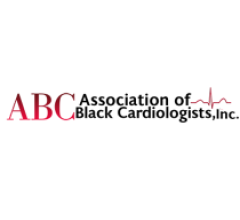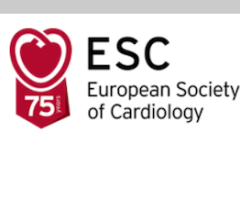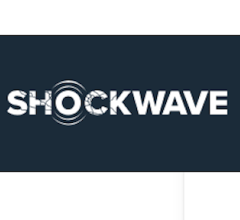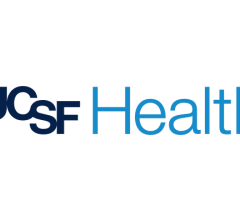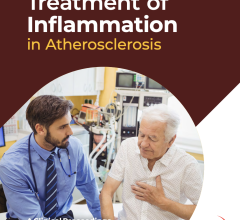
Four late-breaking clinical trial outcomes from The VEINS Conference presented results from the CLOUT Registry, VIVID Trial, DEXTERITY-AFP Trial, and Venous Thromboembolism Treatment were present during the The VEINS Conference, taking place Oct. 28-30 in Las Vegas, NV. Image courtesy: The VIVA Foundation.
October 31, 2023 — Results of four late-breaking clinical trials presented during the The VEINS Conference 2023, taking place Oct. 28-30 in Las Vegas, NV have been announced in a summary news release by The VIVA Foundation, a not-for-profit organization dedicated to advancing the field of vascular medicine and intervention through education and research.
The VEINS (Venous Endovascular INterventional Strategies) is an annual venous education symposium that brings together a global, multispecialty faculty to present a comprehensive variety of talks and case presentations focused on venous care. Attendees include an audience of interventional cardiologists, interventional radiologists, vascular surgeons, and endovascular medicine specialists.
Highlights of the late-breaking sessions, detailed in a written summary by The VIVA Foundation, are as follows:
“1-Year Clinical Outcomes of Deep Vein Thrombosis Patients Treated with Mechanical Thrombectomy: Analysis of the CLOUT Registry,” was presented by David J. Dexter, MD, Sentara Vascular Specialists, who offered the following recap of results.
Long-term, prospective outcome data after mechanical thrombectomy (MT) for deep vein thrombosis (DVT) are lacking. The CLOUT (ClotTriever Outcomes) registry is a prospective, multicenter study evaluating patient outcomes for proximal lower extremity DVT treated with the ClotTriever system (Inari Medical).
CLOUT is the largest MT study in the field of DVT, and although positive results have been previously published, this is the first report of 1-year outcomes for all available patients. Patients in CLOUT were aged ≥ 18 years and enrolled regardless of bilateral disease, duration of symptoms, prior treatment failure for the current DVT event, or contraindications to thrombolytic therapy. A total of 310 patients completed the 1-year follow-up visit.
One year after MT, moderate-to-severe postthrombotic syndrome (PTS; Villalta score ≥ 10) was observed in 8.8% of treated limbs. The overall PTS rate (Villalta score ≥ 5) was 19.3%. Venous patency, as measured by the presence of flow with normal or partial compressibility on duplex ultrasound, was observed in 94.2% of cases. Additionally, significant improvements from baseline in revised Venous Clinical Severity Score, Numeric Pain Rating Scale score, and EQ-5D questionnaire score were demonstrated.
In the real-world, all-comer CLOUT registry, 1-year outcomes demonstrate a low rate of PTS following treatment with the ClotTriever system, which was complemented by patient-centric improvements in symptom relief and quality of life. Study follow-up through 2 years is ongoing. These favorable clinical outcomes highlight the need for randomized controlled trial data comparing MT with standard of care anticoagulation treatment. The recently initiated randomized controlled DEFIANCE trial (NCT05701917) will compare the ClotTriever system to anticoagulation for the treatment of symptomatic iliofemoral DVT.
“Venous Stent for the Iliofemoral Vein Investigational Clinical Trial Using the Duo Venous Stent System: The VIVID Trial,” was presented by Mahmood Razavi, MD. An overview of results is shared here.
The Duo Venous Stent System, comprised of the Duo Hybrid and Duo Extend stents, is uniquely designed for the varying anatomical and mechanical demands of the iliofemoral venous segment. The purpose of the VIVID study was to investigate the safety and efficacy of the Duo Venous Stent System for the treatment of patients with non-malignant iliofemoral occlusive disease.
VIVID was a prospective, multi-center, single-arm study conducted in the United States and Poland. Study centers enrolled patients with non-thrombotic, acute thrombotic, or chronic post-thrombotic clinically significant venous outflow obstruction. Patients were required to have at least one of the following clinical indicators: CEAP ³3, VCSS pain score ³2, and/or suspected and symptomatic deep vein thrombosis. Performance goals were established from published, peer reviewed scientific literature. The primary safety endpoint was freedom from major adverse events at 30 days post-index procedure. The primary efficacy endpoint was primary patency of the stented segment at 12 months. The primary efficacy performance goal was derived based on enrollment distribution within the three disease states. Primary endpoints were adjudicated by a clinical events committee and/or core laboratory. Secondary and observational endpoints include symptom relief, primary-assisted patency, secondary-assisted patency, and device success. Patients remain in follow-up through 36 months.
The VIVID trial enrolled 162 patients at 30 sites between 2020 and 2021. Primary safety and efficacy endpoints were met and will be available for presentation at the VIVA/VEINS meeting.
“First-in-Human: Safety and Performance of the Akura Medical Thrombectomy System in Treating Venous Thromboembolism,” was presented by Jay Mathews, MD, MS, FACC, FSCAI, Bradenton Cardiology Center, with the following results in summary.
A first-in-human, prospective, single-arm study enrolled five patients at two sites in Tbilisi, Georgia, in March and April 2023 to evaluate the safety and performance of percutaneous mechanical thrombectomy using the Akura Medical Thrombectomy System (Akura Medical). The Akura system is a low-profile system that combines targeted clot removal with a platform capable of providing objective data on hemodynamics to help clinicians understand the relationship between thrombus removal and alleviation of pulmonary artery pressures.
The key inclusion criteria included medically eligible patients aged > 18 years with clinical symptoms consistent with acute pulmonary embolism (PE) or sPESI (simplified PE Severity Index) ≥ 1, with symptom onset ≤ 14 days, proximal PE confirmed by CTA, a stable heart rate < 130 bpm prior to procedure, and systolic blood pressure ≥ 90 mm Hg, with a right ventricular/left ventricular (RV/LV) ratio > 0.9. Five patients were enrolled, treated, and followed through 7-day follow-up.
The patients successfully received treatment with the Akura thrombectomy system to remove pulmonary thrombus in the pulmonary vasculature. The average procedure time from anesthesia start to closure was 117 ± 50 minutes, with an average fluoroscopy time of 30 ± 21 minutes (range, 13-68 minutes). Total blood loss was 247 ± 80 mL on average, with 189 ± 120 mL of contrast used per procedure. After 48 hours, the RV/LV ratio decreased by 0.35 from 1.29 ± 0.15 to 0.94 ± 0.12 (P < .05; 26.85% reduction). Through 7-day follow-up, there were no deaths, device-related major bleeding, or device-related adverse events.
The Akura thrombectomy system for PE appears safe, and preliminary evidence shows that this platform technology leads to a significant reduction in RV/LV ratio and thrombus burden.
“Local Anti-Inflammation to Augment Deep Vein Thrombosis Intervention: 6-Month Results from the Open-Label Phase of the DEXTERITY-AFP Trial,” was presented by David J. Dexter, MD, Sentara Vascular Specialists. The summary follows:
The DEXTERITY-AFP trial is a phase 2, multisite trial investigating Bullfrog microinfusion device (Mercator MedSystems, Inc.) perivenous injection of dexamethasone sodium phosphate injection, USP combined with contrast and at a dosage of 2 mL (6.4 mg) each 5 cm of treatment length to improve patency and postthrombotic syndrome (PTS) 6 months after thrombus removal in symptomatic deep vein thrombosis (DVT) spanning into at least the common femoral, femoral, and/or popliteal veins. In the first phase of the trial, 21 participants were enrolled and treated with dexamethasone for comparison to known historical data. In the second phase of the trial, 60 participants will be enrolled 1:1 in a dual-blinded, randomized controlled trial (RCT). DEXTERITY-AFP is the first known trial to investigate local drug delivery intended to reduce venous inflammation associated with DVT.
Of the 21 patients enrolled in the first phase of the trial, one patient withdrew after 1-month follow-up. The 20 patients remaining are 90% male, 60% have left-sided DVT, are 10.2 ± 0.7 days post–symptom onset, and average treatment length is 36 ± 2 cm. Thrombus extent was categorized as 75% iliofemoral and 25% femoropopliteal. Regarding safety, there were no Bullfrog (device)- or dexamethasone (drug)-related serious adverse events observed. The primary efficacy endpoint, clinically relevant loss of primary patency, will be examined as combined with the RCT phase. Of the 21 patients followed at 1 month, 19 (90.5%) had fully compressible and two had partially compressible common femoral veins. Other key secondary endpoint data for 20 participants with in-window, 6-month follow-up include reduction from baseline to 6 months in average Villalta score (7.3 ± 0.7 to 1.6 ± 0.4) and 10-point pain score (3.2 ± 0.7 to 0.5 ± 0.2). Mild PTS was observed in 1/20 (5.0%) patients with no moderate-severe PTS.
More information: www.viva-foundation.org

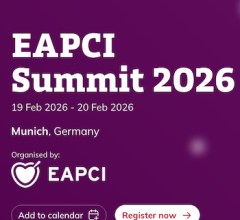
 February 04, 2026
February 04, 2026 
